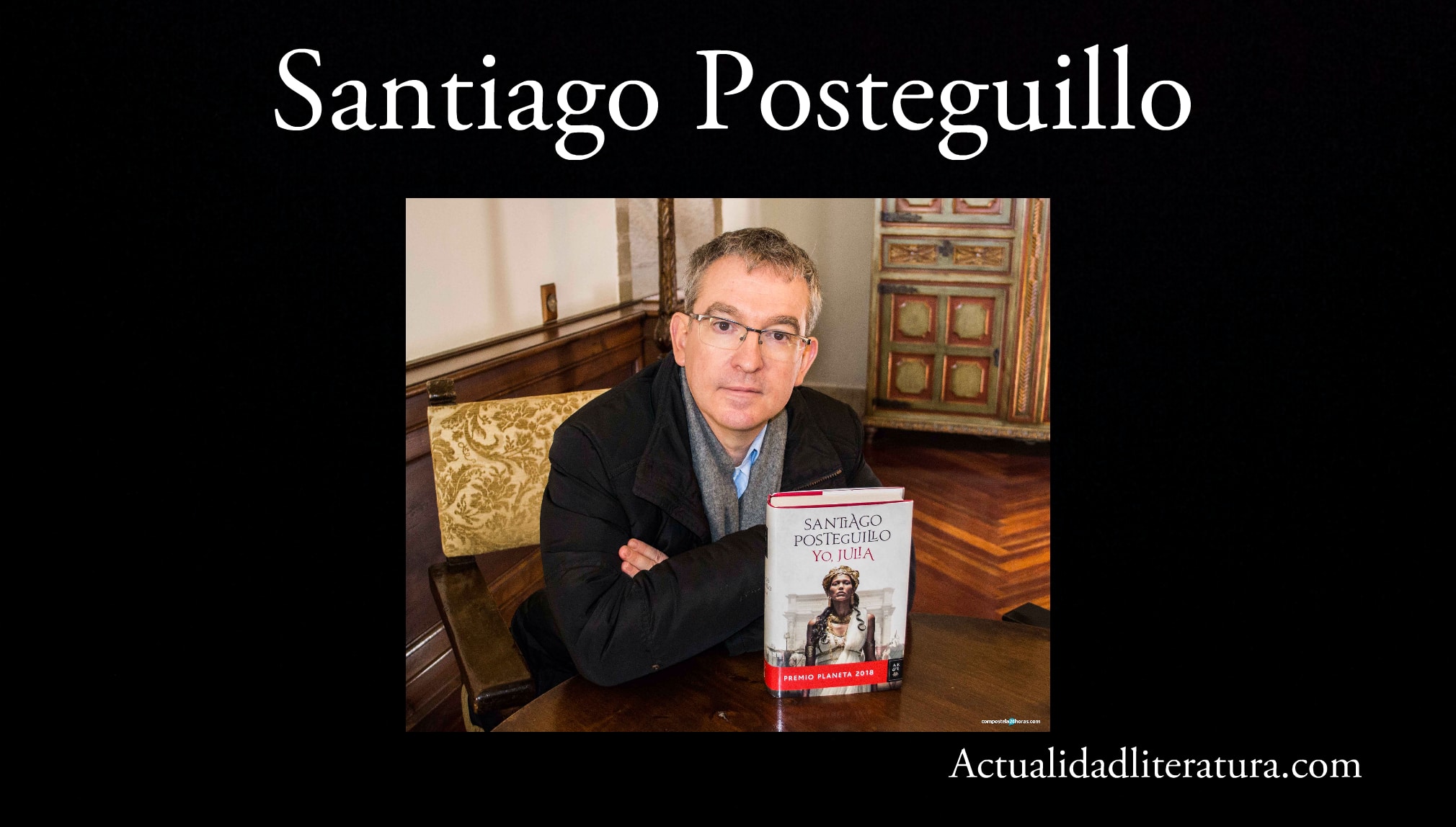
Me, Julia.
I, Julia it became in 2018 the tenth novel published by the Spanish writer Santiago Posteguillo. Recipient of the Planeta Award that same year, it is a historical fiction based on the adventures of Julia Domna. One of the most powerful women within the ruling regime in practically all of Europe and much of Africa until the beginning of the Middle Ages.
The text generated a good number of sales, in this way, it ratified the name of its author among the list of specialists in Ancient Rome and the Roman Empire. This work is full of reliable data, written in an agile and concrete way in equal measure. Therefore, readers are unable to discern between what are real historical events and those drawn from the imagination of the Spanish writer.
The author
Santiago Posteguillo is a Doctor of Philology, trained at the University of Valencia, his hometown. He is also a specialist in English Literature —mainly in XNUMXth century narrative— a subject in which he is a full professor at the Jaume I University of Castellón.
Since his debut in the world of letters with Africanus: the consul's son (2006), the profits generated by his work allow him to live exclusively by writing. Especially after the publication of The betrayal of Rome (2009), the first bestseller in its catalog. However, —in his own words— he enjoys teaching very much and learns from his youth much more than he teaches.
Julia Domna: the protagonist
Julia Domna was born in AD 160. C., in territories belonging to Syria today. Formed within a family of Arab priests, in 187 she sealed her fate by marrying Septimius Severus. This character at that time was the highest authority of the Roman province Gaul Lugdunense or Celtic Gaul. (Region where Lyon currently stands, in northern France).
During this time, the infamous Emperor Commodus occupied the center of the Roman Empire. An extremely unpopular president across the board. Consequently, the Senate and the military establishment combined for a coup that led to his assassination in 192.
Every crisis is an opportunity
The problem was no longer a despotic, corrupt and amoral leader. Rome was reeling from the power vacuum created by Commodus' death. With no natural heirs, the Senate tried to name a successor. But it was not recognized by the military. After periods of frank ungovernability, Septimius marched with his troops to "the navel of the world" and in 193 he proclaimed himself Emperor.

Santiago Posteguillo.
Very few resisted, thanks in large part to the limitless cunning of his wife. The woman had an innate ability to act as a political operator. And, of course, without comparison between any of the women of the empire (not between the men). Therefore, the new hierarch managed to stay in power for almost 20 years. Only his death was able to interrupt his mandate.
The novel, I, Julia
You can buy the novel here: No products found.
The text ranges from those times of palpable uncertainty and nonconformity in the days of Commodus at the head of the Empire to the assumption of power by Septimius. A historical review as well documented as it is superbly described in the middle of the fiction posed.
The narration is led by five different characters, who share the focus of the story. Four men and one woman, all eager for power, but whose efforts are sterile. Of course, only Domna's ally triumphs to thus become Emperor.
Weak sex?
Posteguillo delves into the life of one of the women with the greatest royal power and influence in the history of Western civilization. The author does not hide his vindictive point of view of the figure of Domna. Well, beyond all the power accumulated by this empress, all the credit went to a man, her husband, the Emperor.
However As a good political operator, she did not fight against this type of precepts. On the contrary, he took advantage of them to influence each state decision to the maximum. All of this was possible because Septimius was madly in love with her. Then — in accordance with her interests, which were almost always aligned with those of her husband — she manipulated him at will.
The "fictionalized" story
The narrative focus is on the world within the intimacy of the characters, as well as on their private lives. This is the contribution made by Posteguillo to the historical account. Which serves, wonderfully, as an excuse for his novel. I, Julia. For the most curious readers it is inevitable to review the "real" historical sources and contrast them with this work. The precision is absolute.
Already during the previous trilogies set in Rome, this author had dazzled by his outstanding handling of the data of this period. Both the series of Scipio the African, such as the Trilogy about Trajan not only did they become outstanding narrative works. It is equally appreciated by a large number of historians as a reliable reference. of the greatest empire of antiquity.
Light, like a feather
The text extends over almost 700 pages and has a mandatory historical rigor in a story of this type. Both are necessary aspects to be able to "tell the story properly." Now, only with these two references, many writers would doubt whether it is a good idea to undertake such an adventure. And yes, it is not surprising that they think about not starting a job of this magnitude, especially if they have the fame of Posteguillo and have the slightest chance of being exposed to any obvious failure in the narrative's line of events.

Phrase by Santiago Posteguillo.
But —extension and documentary fidelity aside— I, Julia it's a light read. Posteguillo strikes the perfect balance between rigor and fun to deliver a thrilling tale from start to finish. In fact, despite being able to know the outcome of the story (an investigation on the internet is enough), it is not difficult for the reader to remain trapped ... Whoever takes this book, will only get freedom once they reach the final page.
New trilogy?
Closing I, Julia leave the breach open to continue exploring the world of this tenacious empress. Posteguillo did not keep his wide legion of readers waiting long; barely two years apart published And Julia challenged the gods. The second chapter in a series tailor-made for lovers of the Roman Empire. The best, through a highly entertaining and stimulating reading.